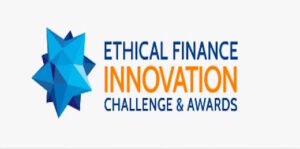The Hawkamah Institute for Corporate Governance and the Organisation for Economic Co-operation and Development (OECD) wish to thank the participants, speakers and sponsors attending 6th annual regional corporate governance conference held on 31 October – 1 November 2011 in Dubai with H.E. Eng. Sultan Bin Saeed Al Mansoori, Minister of Economy of the United Arab Emirates, opening the conference with a keynote address.
The 6th annual regional corporate governance conference assembled public and private participants from across the Middle East and North Africa region, including Algeria, Bahrain, Egypt, Iraq, Jordan, Kuwait, Lebanon, Morocco, Oman, Palestinian Authority, Qatar, Saudi Arabia, Sudan, Tunisia, Turkey, United Arab Emirates and their counterparts from Europe and the United States of America.
The theme of the annual conference, Words to Action: The Next Regional Corporate Governance Challenge, reflected the improvements of corporate governance frameworks in the Middle East and North Africa through regulatory updates and the development of corporate governance codes in almost all jurisdictions.
At the same time, participants acknowledged challenges with the implementation of the new requirements among listed companies, but also with the adoption of better governance standards among other enterprises (state-owned, small- and medium-size unlisted firms) which contribute significantly to the economies of Arab countries.
Considering the challenges arising from the global financial crisis as well as the political and economic impacts of the Arab spring in the region, the conference attendees:
Recognized that good corporate governance practices will enhance the region’s long term economic performance by making it an attractive investment destination, and that furthermore, they can help ensure that the region retains capital in the long term;
Noted the growing role of domestic institutional investors, including sovereign funds, as a potential source of demand for better governance practices in local companies and highlighted the need to also examine their own governance arrangements;
Agreed on the need to further develop the region’s capital markets by providing incentives for family-owned firms and other types of enterprises to list their equity, and noted the initiatives of several Arab stock exchanges to encourage this;
Called for the development of a regional corporate governance research platform, bringing together academics, and practitioners in order to stimulate and gather evidence-based research on the benefits of good governance and challenges with implementation;
Encouraged the collection of detailed information on corporate governance frameworks in MENA countries, as sought by the OECD Survey conducted in 2011, in order to better understand the existing gaps and support regional dialogue;
Recognised that in light of the concentrated ownership structure in the region and the presence of unlisted company groups, the risk of abusive related party transactions remains relatively high and warrants ongoing attention;
Observed that since the publication of the regional Policy Brief on Corporate Governance of Banks, governance of banking institutions has evolved, but still requires a review with an emphasis the role of corporate governance in anti-corruption and risk management;
Welcomed the progress made by national authorities in establishing effective disclosure frameworks and encouraged enhanced disclosure by listed but also by privately owned firms, including informative narrative reporting;
Announced the first slate of accredited directors by Hawkamah’s sister institute Mudara Institute of Directors to serve board rooms in the region as advocates of good corporate governance practices;
Acknowledged the need to develop better frameworks on corporate governance of state-owned enterprises, family-owned enterprises and other unlisted companies so as to attract investors, encourage private sector led growth, and job creation;
Received a presentation on the OECD’s regional publication on corporate governance of state-owned enterprises to be released in 2012 and commended its efforts to support the reform of state-owned enterprises through the regional Taskforce;
Commended the efforts of some MENA countries in improving their frameworks of state-ownership, including Morocco, which released a Code on Corporate Governance for SOEs in 2011, and Egypt which did so in 2006;
Encouraged the development of clear ownership policies, as well as better coordination and accountability of state ownership in the region with a view to improve the performance of SOEs and increase the transparency around the role of the state as an owner;
Noted the progress achieved by the OECD Taskforce of MENA Stock Exchanges for Corporate Governance, in which stock exchanges and securities regulators participate, including the forthcoming study on the role of exchanges in corporate governance;
Called on the international and regional organisations to support Arab countries undergoing political and economic transitions, notably Egypt and Tunisia, through capacity building activities aimed at supporting the development of sound corporate governance practices;
Confirmed that the OECD Working Group on Corporate Governance and the OECD Corporate Governance Committee stand ready to support the Deauville Partnership Process which seeks to encourage, inter alia, private sector development in the region through better corporate governance practices; and
Encouraged a more effective dialogue between corporate governance practitioners in the region with their international counterparts through OECD, Hawkamah and other networks.
Thanked the financial support of Du as the Exclusive Telecom Partner, Bank of Sharjah, Muscat Bank, Dubai World Central, Future Pipes Industries, Al Baraka Banking Group, ICSA, Dubal and Weil; and the media partners: the Financial Times, Executive Magazine, and Banker Middle East.
6th Annual Regional Corporate Governance Conference Final Statement
1 November, 2011
read 3 minutes
Read Next
Media Comments & Quotes
Comments on CSR, Global Post via Xinhua, 19 May 2015
Click here to access the original article, published 19 May 2015; comments highlighted below. Corporate social responsibility
20 May, 2015
MENA Economics
Ethics, Rebuilding Trust in Finance & Some Lessons from Islamic Finance: Speech at EFICA 2014
This keynote address was given at Ethical Finance Innovation Challenges & Awards (EFICA) 2014, organised
30 October, 2014
Media Comments & Quotes
Regulators may be the “new rock stars” but don’t forget the media: The National
[This article by Frank Kane appeared in The National on 18th Feb, 2014. Link to
19 February, 2014



